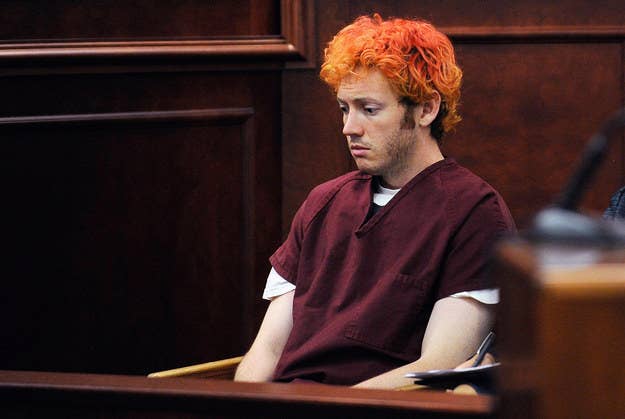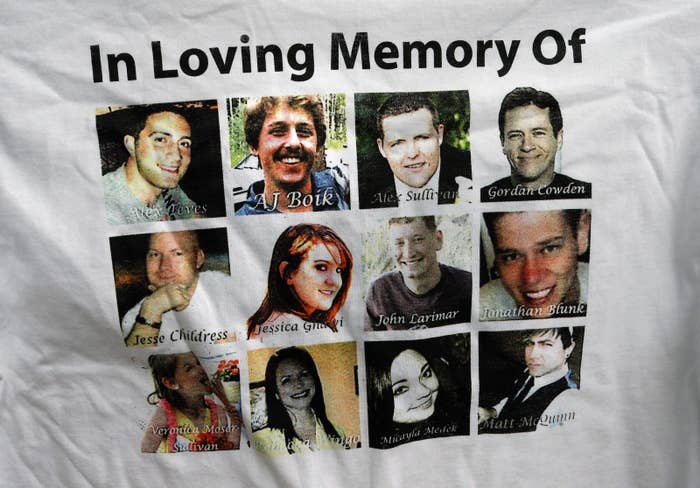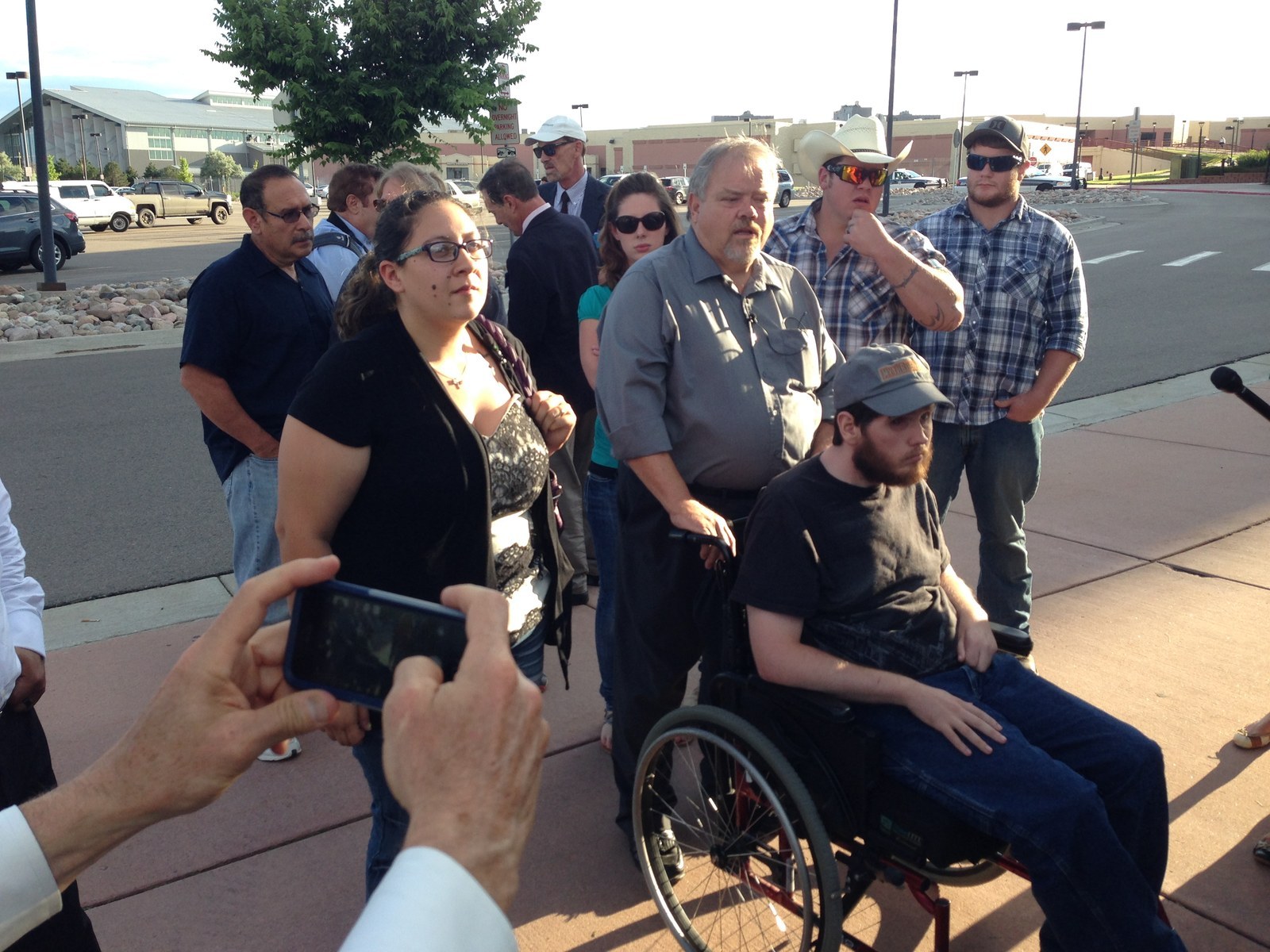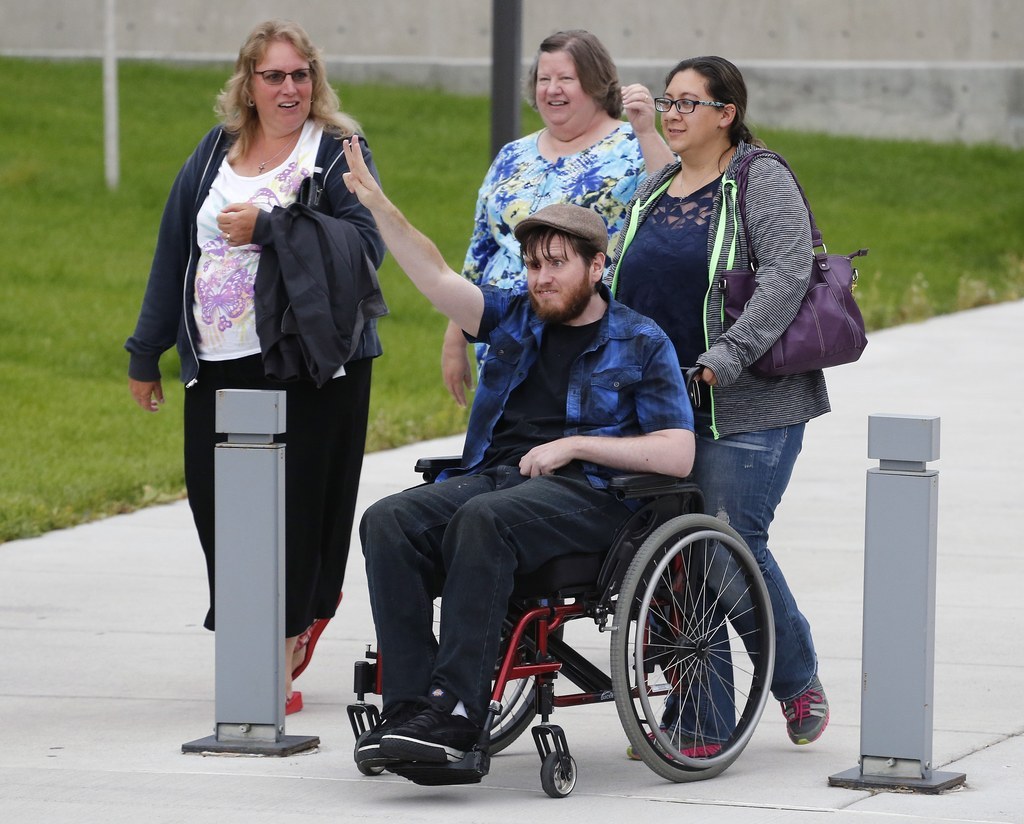
AURORA, Colorado — James Holmes on Thursday was found guilty of first-degree murder for shooting and killing 12 people inside an Aurora, Colorado, movie theater in 2012. The massacre left 70 others injured.
The verdict came after a nearly three-month trial in which Holmes faced a total of 165 charges in connection with the shooting. His defense team never disputed that Holmes was responsible for the killings, arguing instead that he was in the midst of a psychotic episode and was legally insane at the time.
The verdict means the same jury of nine women and three men can now sentence Holmes to death as the trial moves to the penalty phase. He would have been confined indefinitely to a mental hospital had he been found not guilty.
Holmes stood frozen, gazing straight ahead with his hands in the pockets of his khaki pants. It took more than an hour for the judge to read the verdicts for all the more than 160 charges.
The verdict represents the a major milestone for the dozens of survivors and victims' families since Holmes walked into a screening of The Dark Knight Rises on July 20, 2012, and opened fire. He had over 700 rounds of ammunition with him during the shooting, as well as tear gas, and had spent months meticulously planning out the massacre. Several of those injured in the shooting continue to struggle with disabilities.
When the judge finally read the verdict for Holmes' first charge, the gallery rippled. Josh Nolan, who was injured in the shooting and now walks with a cane, leaned forward in his chair and clenched his eyes shut, rocking slightly back and forth as he held a fist to his forehead.
Nearby, two women embraced, sobbing silently. Another woman, with gray curly hair, pressed her hands together and looked upward as if she were praying.
Throughout the gallery other victims and their families wept.

Later Thursday, many of the victims said the guilty verdict was a relief.

Katie Medley attended court with her husband Caleb, who suffered debilitating injuries in the shooting. Katie said she was relieved by the verdict, and that the family hopes Holmes gets the death penalty.
"It's been a hard journey," Medley said.
Caleb also spoke to reporters after the verdict, with Kate and his father Otis translating. He said he was satisfied with the verdict, though Katie pointed out that the affects of the shooting would play out in the lives of her family indefinitely.
Both Katie and Otis described the verdict as a "bittersweet" outcome.
Sandy and Lonnie Phillips also spoke after the verdict was announced. Holmes killed their daughter, Jessica Ghawi. They moved from San Antonio, Texas, to Colorado in order to attend the trial.
"We're very glad this animal, this monster, will never see the light of day."
Outside the courthouse, Sandy Phillips said they were "extremely happy" with the verdict.
"We're very glad this animal, this monster, will never see the light of day," she added.
Tom Teves described his son, Alex — who was among those killed in the theater — as the kind of person who would have gone out of his way to help even his own killer.
"He would have helped this piece of crap, to be honest with you," Tom Teves said.
He went on to say that mass killings like the one Alex died in need to stop, noting that despite the verdict, the victims's families and survivors were still suffering.
Tom went on to say that the public defender and an "epic fail" when the argued that Holmes was not guilty by reason of insanity.
During Holmes' trial, which began in April, a psychiatrist who specializes in schizophrenia testified for the defense that he was trapped in psychotic delusions in the weeks leading up to the shooting and could not be held responsible for his actions.
On Tuesday, during closing arguments, defense attorney Daniel King reiterated that argument, saying Holmes long struggled with mental illness and finally succumbed to it shortly before the massacre.
“Mental illness causes this to happen,” King said. “Only the mental illness caused this to happen and nothing else.”
Prosecutors disagreed.
Throughout the case, District Attorney George Brauchler argued that Holmes knew what he was doing. In his final remarks Tuesday, Brauchler added that Holmes' actions were deliberate, rational, and "anything but psychotic."
“That guy was sane beyond a reasonable doubt, and he needs to be held accountable for what he did,” Brauchler added.
Prosecutors called several experts to testify during the trial, including court-appointed psychiatrist William Reid, who said Holmes was sane.
“My opinion is that whatever he suffered from, it did not prevent him from forming the intent and knowing what he was doing, and the consequences of what he was doing,” Reid told the court in May.
Numerous victims also took the stand during the trial and recounted the horror of being in the theater when Holmes opened fire. Among them, Katie Medley talked about hearing shots ring out, then seeing that her husband, Caleb, had been shot in the face.

“That’s when I saw blood pouring from his face,” she testified in April.
Medley soon found herself saying “I love you” to Caleb for what she thought would be the last time. Caleb ultimately survived, but is wheelchair-bound and continues to suffer from other severe disabilities.
Prosecutors eventually charged Holmes with 24 counts of murder for the 12 people who died in the shooting. The remaining charges reflect the wounded victims, as well as Holmes' failed attempt to blow up his apartment.
With the verdicts read, the judge ordered the jury back on Wednesday to begin the penalty phase of the trial, during which they will be asked to decide whether to sentence Holmes to death, or send him to prison for life.

